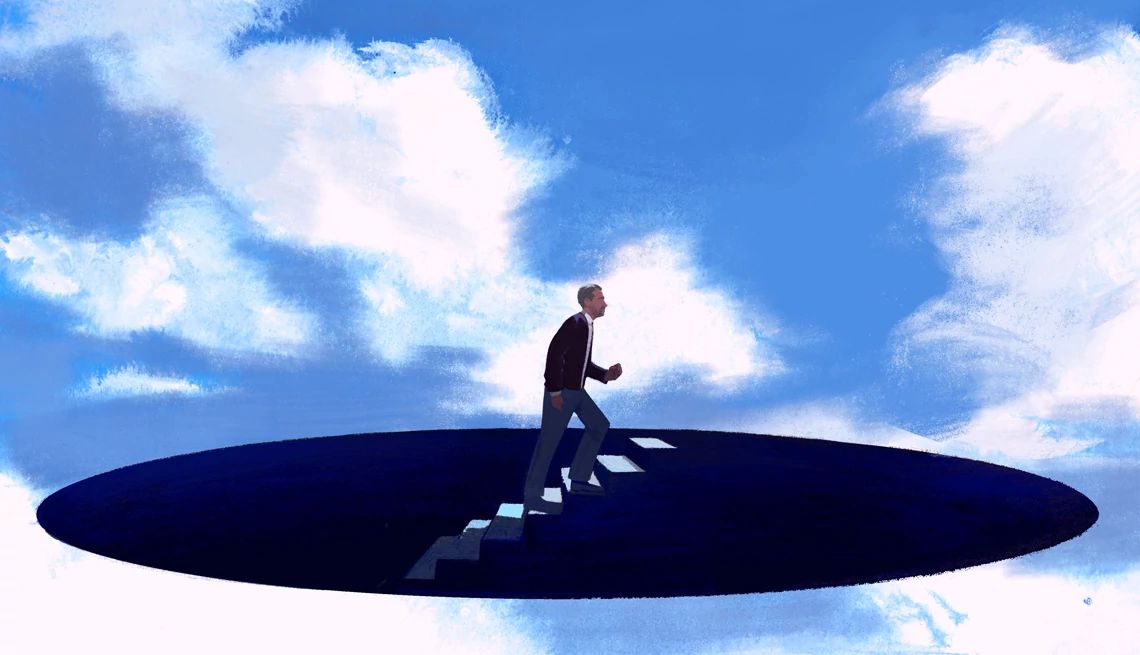AARP Hearing Center


I’ve never loved anyone the way I loved Rob. Six years ago, I joined the world’s worst club when my oldest son shot and killed himself. He was 28. Rob experienced depression, bipolar disorder and alcoholism. After he died, it was my turn to find out what suffering really means.
In the first few weeks and months, I was gutted and in shock. So were my ex-wife, Caryn, and younger son, Zach. Our family was destroyed. The whole thing seemed surreal — time was out of whack, nothing made sense. And then, little by little, the fog lifted and everything became sharp and very real: Rob was dead. End of story. I was walking around with a hole in my heart and just wanted the pain of never seeing him again to stop. I started to write about him every day — it was the only way I knew to grieve — and that led to a book that I hoped would help others in the same situation. It also paved the way for some revelations, as did joining a grief group.
There’s a good chance you’ve been fortunate enough not to lose a child, but I know you’ve been touched by grief. When you get to be our age, losing people we love is just part of the deal. If we love, we grieve. That’s the bargain we make for staying alive.
But the weight of it takes you by surprise, and so, for me, did the grief group experience. I’ve always been a textbook lone wolf. But revealing your darkest and most intimate thoughts to strangers who truly understand — because they pretty much feel the same way — opens you up like you could never imagine. Everything seemed different one night, near the end of two years in my group, when I was struck by a palpable lightness in the room. We still talked about the rough stuff, but the tone had shifted. We sounded calmer, more self-assured, even hopeful — nothing like the early days, when we were all such hot messes.
In short, we were transformed. And that sparked an unexpected calling: I wanted to help others who were facing a similar struggle. Becoming a group leader and grief coach is one of the most rewarding things I’ve ever done. It also taught me some essential lessons.

































































You Might Also Like
The Game That Got My Family to Put Down Their Phones
Conversation cards foster meaningful, fun conversations and build stronger family bonds
How Travel Helps Dealing With Grief
Group trips, wellness experiences and retreats offer ways to move through mourning
25 Ways to Bind up Grief’s Wounds
How to heal when the deep shadows of loss pierce your heart